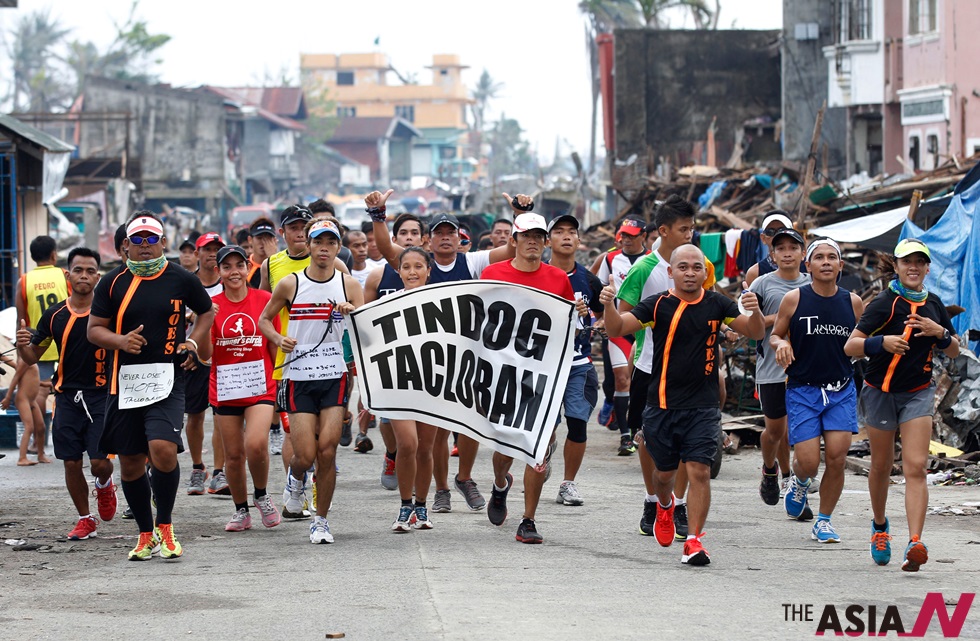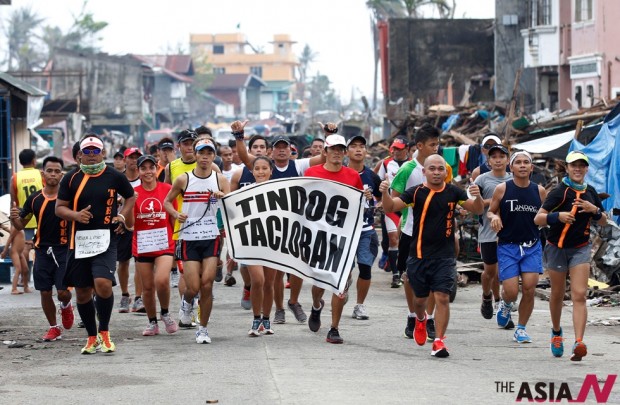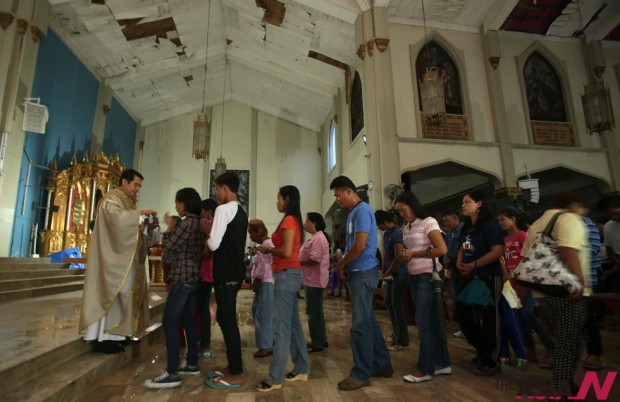
Significant messages for Filipinos

As the year 2014 began, we celebrated the feast of the Three Kings also known as the Epiphany of Christ to commemorate the day when Christ manifested himself before the three wise men from the East. It may be worthwhile to cite a layman’s point of view of its message, particularly the place, people and time surrounding Christ’s manifestation.
According to this layman, the Holy Child Christ was born in a lowly manger to show his humility and his care and concern for the poor and the needy. The shepherds were the first to learn and witness his birth because they represent the Church leaders and ministers, who have the greatest human role of guiding all of us, his flock, so no one is lost; and to find and bring them back to God if anyone gets lost. He then manifested himself to the Magi who knelt before him. They represent the world leaders and government officials who should learn to subject themselves to Christ. They gave him gifts of gold, frankincense and myrrh, representing the world’s riches, power and possessions to which they should not be attached and should easily let go of to help the needy.
It is nice sharing this point of view because it comes from a layman who is a congressman from the Province of Palawan, Douglas S. Hagedorn. Obviously, he wants to convey this message to his colleagues in Congress and to other government officials. Hopefully, they will heed his message.
We stepped into the new year obviously with a surging feeling of “we are glad it’s all over” after experiencing calamities and disasters in Central Visyas and Zamboanga City that claimed thousands of lives.
Greeting the new year full of hope
Indeed, people are just raring to see the dawn of a new year full of hope by junking all the bad and harrowing experiences of the year that was. Filipinos are really optimistic people. They always find enough reasons to be thankful for the year that has just ended, and to be hopeful for the year about to begin despite the many setbacks, ordeals and tragedies happening to them.
Apparently this trait is borne out of their strong faith that “in everything, God works for the good of those who love Him, whom He has called according to his plan” (Romans 8:28). We can always cope with hardships and endure difficulties because “God allows those things to happen to draw out the good from them”; since “everything is for the good” (Omnia in bonum, “The Way” by St Josemaria Escriva).
“Everything is for the good” may indeed be the appropriate slogan we need during these trying and difficult times. But, the good in everything takes place and comes out only if and when we do our part in preventing the recurrence of those disasters and the wrongs happening around us. Some concrete measures should be adopted so that we can sustain this cheerful and hopeful outlook. We cannot just keep on hoping without doing anything.

True it is that predicting when and what will exactly happen during the year is humanly impossible, particularly the occurrence of deadly typhoons. Neither is it possible to control nature’s intense wrath. Nevertheless, we should not desecrate nature nor pollute and neglect to take good care of our environment. And more important, we should be prepared for such calamities because we know that we are located within the “ring of fire” where earthquakes, typhoons and volcano eruptions are sure to occur almost yearly.
Be more prepared for disasters. So, on top of our government’s “to do” list should be the improvement of our disaster preparedness. The government should first of all give priority to the acquisition of more accurate and sophisticated storm trackers and early warning devices to enable people on the path of destructive storms to seek shelter in safer places before and not after the calamity has occurred.
Our disaster rescue and relief operations should also be improved. Quicker response during and immediately after calamities must be undertaken. In the last deadly typhoon, many more lives might have been saved if quicker and more massive rescue and relief operations were carried out immediately. And this is more achievable if our officials would keep politics out during those perilous times.
Disaster preparedness must improve
Then, our government should also tap experts in building typhoon resistant shelters. We have to replace houses easily blown or washed away by typhoons with more durable ones. The houses built by the people of Batanes, where more typhoons occur than in any other place in the Philippines may serve as a model for this purpose. Permanent relocation of informal settlers in danger zones like river banks and seashores must also be undertaken. All these measures are long overdue.
Of course an honest-to-goodness, lasting and effective environmental protection program must be drawn up. There must be something wrong with the government policy on preserving our natural resources or it is not being properly implemented by the Department of Environment and Natural Resources (DENR).
Illegal logging and mining are still rampant despite numerous pronouncements banning them. After every killer landslide or mudslide, press releases calling for investigations as to their causes usually follow. But, after the furor has died down, nothing comes out of the investigation until another landslide or mudslide occurs and another investigation is called. This pattern should stop.
Finally, concrete steps must also be adopted for the attainment of long lasting peace that has eluded us for so many years now. The areas in our country where violence and killings are bound to happen can easily be pinpointed because of the presence in those areas of criminal elements and rebel groups trying to secede from our country.
Maybe this government should rethink its policy about them and should no longer treat them with kid gloves after what happened in Zamboanga. It should give equal attention to this problem instead of concentrating only on the fight against graft and corruption. It is only when we have lasting peace that we can attain true prosperity.



